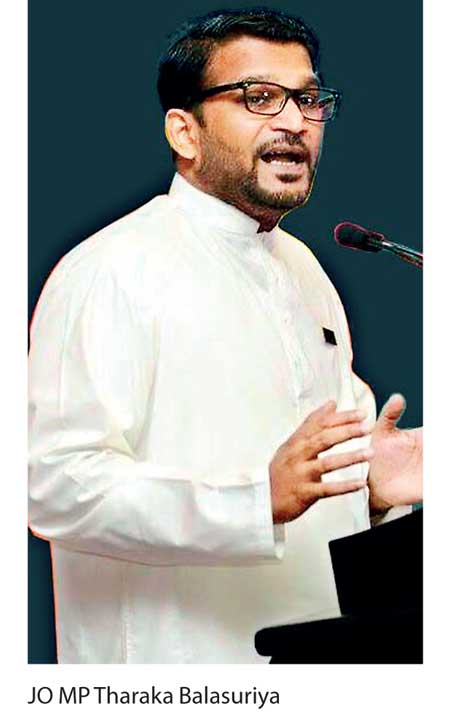Sunday Feb 22, 2026
Sunday Feb 22, 2026
Friday, 28 July 2017 00:00 - - {{hitsCtrl.values.hits}}
 A new foreign exchange bill was passed in Parliament on Tuesday; the bill is an updating of an archaic set of laws. These laws made criminal offences of what today would be considered minor violations, and have caused many problems for the citizens of Sri Lanka over the last several decades.
A new foreign exchange bill was passed in Parliament on Tuesday; the bill is an updating of an archaic set of laws. These laws made criminal offences of what today would be considered minor violations, and have caused many problems for the citizens of Sri Lanka over the last several decades.
The bill was passed with 94 voting in favour and 18 voting against.
Passage of the bill was preceded by debate, where JO MP Tharaka Balasuriya highlighted several concerns about the timing of the liberalisation of Sri Lanka’s foreign exchange regime.
Balasuriya expressed support for the direction of the bill which would lift restrictions and controls on the citizens of Sri Lanka. He pointed out that trade in yesteryears didn’t carry any exchange controls, and that the trend in all modern global economies was for opening up the capital account. However, despite this global trend, today in Sri Lanka, people are burdened with many restrictions on foreign exchange caused by the historical instabilities of the country’s economic situation.
The MP expressed strong support for de-criminalisation of exchange control offences, provisions that allow exporters flexibility, and sections that allow local companies to invest and expand abroad.
Although supporting much of the bill, he expressed significant concerns on reservations timing of the Bill and safeguards to the economy. His preference was for the bill to be brought at a time where Sri Lanka was economically strong, and the global economy stable.
Expressing support for the long term relaxation of exchange controls, the MP also gave a warning of possible short term disruptions that may be caused in relaxing the foreign exchange regime too quickly. He pointed out disastrous consequences of failed liberalisation policies that resulted in the Asian Crisis which incited sharp devaluations and economic crashes through the region.
With regard to Sri Lanka, it was pointed out that the economy was in a fragile state, and vulnerable to unpredictable shocks that may result from the relaxation of exchange controls.
The JO MP cited political instability, a large trade deficit, balance of payment problems, weak exports and flattening tourism revenues as indications that the economy may not be ready for significant relaxation of exchange controls. With regard to tourism he highlighted that the industry was vulnerable to a shock from the dengue epidemic, and that unless the situation is brought under control, the World Health Organisation may issue travel warnings on Sri Lanka.
Hitting out at the former Finance Minister Ravi Karunanayake, he blamed him for many of the instabilities in the economy and challenged him on the controversial revelations of rent payments on his behalf by a controversial businessman. He challenged the former Finance Minister to deny the specific allegations against him for which the minister had no response.
He criticised the government for not understanding the aspirations of the people which have resulted in strikes and problematic crackdowns on protestors.
Balasuriya gave a sharp warning on gold trading, citing that supervisory mechanisms have been lifted in the bill. He warned that the gold trade can become a significant vehicle for major capital outflows. He stated that the bill lacked a mechanism for the Government to impose material restrictions on gold trading, and that new legislation may have to be brought during a crisis in order to impose restrictions to protect the economy.
On another topic the JO MP questioned the authority for the Central Bank to permit any person by a special gazette to transact in foreign exchange. He warned that this authority was too open ended and could lead to irregularities. He claimed that the provision was likely to facilitate large future projects, but was unnecessary as the Central Bank in any case can appoint restricted agents.
The foreign exchange regime in Sri Lanka now has a much needed modernisation. Despite the delicate timing and weak economic environment pointed out by Balasuriya, there is hope that this legislation will help to improve the economy. It is important for the legislators to explain to the business community and general public what has been passed, and how the bill will bring benefits to the country.